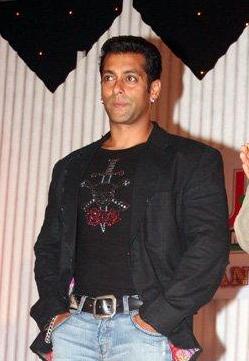 |
| English: Indian actor Salman Khan (Photo credit: Wikipedia) |
लोग कह रहे हैं चीन से तो नहीं आए मीडिया वाले। जैसे कि वो कोइ अच्छी बात है। अरे चीन मीडिया न आने के कारण हैं: (१) चीन में प्रेस फ्रीडम नहीं है (२) चीन के लिए अगर तिब्बत दुर है तो नेपाल तो बहुत दुर हुवा न (३) नेपाल को मदत करने सबसे पहले भारत पहुँचा, चीन नहीं।
It is possible some Indian journalists asked some questions that might have come across as insensitive. But, like I said, I have seen only one video clip, and that did not pass the test.
It is the job of the journalists to ask the wh questions: who, why, how, where, when, what.
But I have seen a ton of evidence of blatant racism. A guttural hatred of Indians defines the chief ideology of the power elite in Kathmandu. Indians have a hard time facing that fact. Just go to this Facebook page and see for yourself.
One example. There were online rumors that Salman Khan had donated crores of rupees and a few helicopters to Nepal. Salman did the right thing: he put out a statement saying that rumor is not true.
A whole bunch of Nepalis have been jumping up and down the street on that one. Who does Salman think he is? वो अपने आप को क्या समझता है? People have been calling him names. And he is a movie star. So if people can talk hate upon Salman Khan, don't try to justify their talking hatred upon some young Indian TV journalists.
The word Madhesi does not exist in Delhi. Or in Patna, or Lucknow, or Kolkata. मोदी से ले के जितने आते हैं पशुपति के दर्शन कर के चले जाते हैं। सबको लगता है अपनी ही बिरादरी के हैं। भारत तो १९४७ में आजाद हो गया लेकिन मधेस अभी भी गुलाम है। इस बात पर दिल्ली में कोइ हमदर्दी नहीं। चलो सोशल मीडिया के जरिए वो hatred तो सबके सामने आ रही है।
पहले था Go Home Indian Media, अब वही लोग Go Home Indians, Go Home Indian Army पर उतर आए हैं।
Twitter ने सबको एक एक मेगाफोन दे दिया है। लोग तो बोलेंगे ही। तरह तरह के विचार आएंगे। लेकिन ये गाड़ी free speech के पटरी से उतर के hate speech तक पहुँच गयी है। जो hatred नेपाल के मधेसी रोज भुगतते हैं वो आज सलमान को भी भुगतना पर रहा है।
यमन के दौरान युरोप के कइ देशों ने मोदी को धन्यवाद बोला ---- नेपाल वाले कब बोलेंगे? काठमांडु वालों को चाहिए कि Twitter पर #NepalthanksModi #ThankYouModi को ट्रेंडिंग करो।













